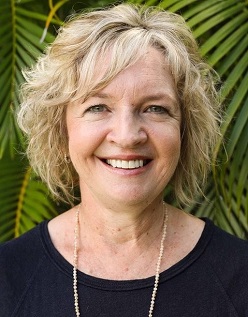It might sound strange to think of anxiety as our friend, rather than an enemy.
Think of it this way: Anxiety can be like a smoke detector for our mind.
It is a warning, letting us know something is burning on the stove. Where there is smoke, there’s fire. If you take the batteries out of the smoke detector because the noise drives you nuts, then you will miss the warning that the house is going to burn down.
Don’t ignore anxiety – like a true friend, it could be alerting us to danger, telling us something is not okay.
Instead, take the time to see and understand what’s burning on the stove of your mind.
What Causes Anxiety?
If your mind is on fire, counselling is a great opportunity to explore the usual suspects. These can include:
- Fear – Fears are often influenced by a person’s temperament.
- Guilt – It may be ‘true guilt’ or ‘false guilt’ – they may feel exactly the same and have the same damaging impact on our brain and body. In counselling, we work together to enable you to discern the difference between true guilt and false guilt.
- Worry – Worry is being preoccupied with anything other than the present moment, and it comes with a sense of impending danger.
- Negativity – Having a mostly negative outlook on life can become our default, making it a real struggle.
- Unforgiveness – Of yourself, others, or even God.
- Anger – There are various ways that the different temperaments express anger. Before we manage anger we need to understand it; there is generally another emotion behind anger, and usually it is a response to one of three things: hurt, fear and shame.
- Resentment – Living under obligation, which can be like frozen anger.
- Trauma – Trauma is not always within our control. Things happen in life, and we often need help to process it healthily and deal with the impact of the negative emotional memory. We cannot change our toxic memories, we can only re-layer them. The law of psychiatry says, “We can only dispossess by possessing”. Therefore, we learn to push out the rubbish in our minds by consistently bringing in truth.
Every time we think a negative thought, we reinforce that pathway in the brain making it easier for the brain to refer back to these pathways in the future.
Creating New Pathways
The more we complain or focus on something negative, the more it becomes our default. However, if we were to choose thankfulness instead of complaining, our minds begin to renew themselves by creating new pathways of gratitude for the future.
We can’t stop a negative or destructive thought from coming into our mind, but we can choose to take immediate action. Negative thoughts can be like poison, killing our self-esteem, relationships, sense of reality, future dreams, ambitions and more.
Our thoughts are incredibly powerful so we want to make sure they are bringing good into our lives, instead of harm.
During counselling we can look at ways we can challenge or distance ourselves from unhelpful thinking habits. The main way of getting rid of a negative thought pathway in the brain is to consistently bring in something truthful to replace it. Therefore, we learn to take hold of the negative thought – which most often is a lie – and replace it with truth. Scriptural, scientific and psychological evidence all tell us that as we focus our attention on truth consistently, our brain begins to heal.
Counselling helps a person to proactively deal with dysfunctional thinking. Instead of living in denial of anxiety, we can stop and identify what is burning on the stove of your mind. Labelling may help reduce its intensity and slow down the process, as well as help to navigate a way forward. Our emotional health depends totally on what we believe!
If you are struggling with anxiety, I welcome you to make an appointment with me.
 Author: Fiona Muller, B Soc Sc, Major in Counselling; Member of PACFA and CCAA.
Author: Fiona Muller, B Soc Sc, Major in Counselling; Member of PACFA and CCAA.
Fiona is a registered counsellor working with both individuals and couples. Having previously worked with women’s groups, aged care, child care, pre-marriage counselling and community outreach programs, and married for nearly 30 years with two young adult children, Fiona’s experiences have given her a greater understanding and empathy of the many challenges and losses that life brings.
To make an appointment try Online Booking. Alternatively, you can call M1 Psychology Brisbane on (07) 3067 9129.